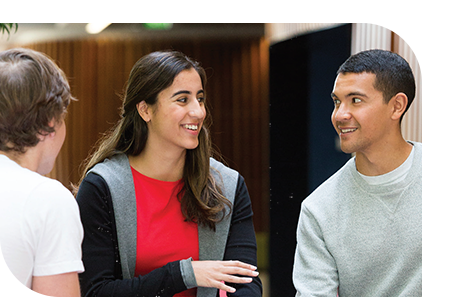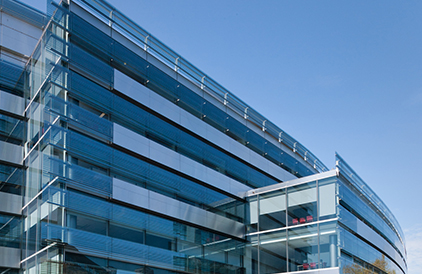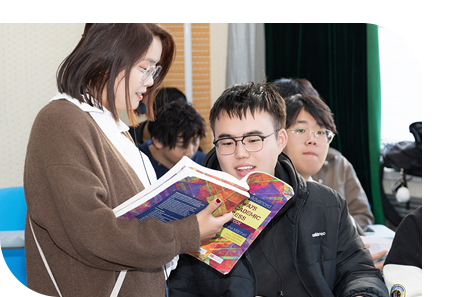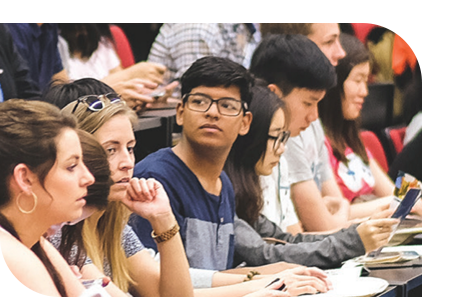-
Professor Sebastian Link
DSc (Auckland 2015); PhD (Massey 2005); MSc (Clausthal 2000)
Professor
In: School of Computer Science »Faculty of Science
Associate Dean - International
In: Faculty of Science Administration » Faculty of Science
Biography
Sebastian received his PhD in Information Systems from Massey University in 2005. He was lecturing in Information Systems at Massey University, Palmerston North, until 2007. From 2008 until 2011,Sebastianwas Associate Professorat the School of Information Management at the Victoria Universityof Wellington.Sebastian joined theDepartment of Computer Science at theUniversityofAuckland in 2012. Sebastian received a DSc from the University of Auckland in 2015.
Research
My main research interest is the application of logic, algebra, combinatorics,and statistics tocomputer science.I have mainly worked in the area of database theory, conceptual modeling and XML. However, I am also very muchinterested in the motivationof my research area, in particular in the perceived drivers and barriers to concepts in databases and modeling.
Responsibilities
Associate Dean (International) - Faculty of Science
Director of the Masters Programme of Professional Studies
Areas of expertise
Artificial intelligence, Database design, Database security, Database theory, Data modeling, Data science, Logic in Computer Science, Semantics in data, Semantic Web, Uncertainty in data, XML

-
Dr Duncan McGillivray
BA/BSc (Auck), BSc(Hons) (ANU), DPhil (Oxf)
Associate Professor
In: Chemical Sciences » Faculty of Science
Associate Dean
In: Faculty of Science Administration » Faculty of Science
Research
My research involves looking at the surface structures of biological systems using surface sensitive methods, particularly neutron and X-ray scattering. The recent commissioning of the OPAL research nuclear reactor in Sydney, and the opening of the Australian Synchrotron X-ray source in Melbourne, provide world-class facilities within easy reach of Auckland. Through measurements performed at these facilities the behaviour of surfaces and in particular biological membranes can be studied in detail.

-
Associate Professor Gordon Mark Miskelly
BSc(Hons)/PhD (Otago)
Head of School
In: Chemical Sciences » Faculty of Science
Research | Current
Gordon Miskelly's research focuses on two main areas
•The application of coordination chemistry and analytical chemistry to practical problems
•The development of electrocatalysts and sensors via rational design.
Responsibilities
Deputy Director, Forensic Science

-
Dr John Taylor
Deputy Head –Academic
Senior Lecturer
In: Biological Sciences » Faculty of Science
Research | Current
Research interests
Virology
Cell biology
Immunology
Molecular Virology
The main interest of our lab is the pathogenesis of viral infections. Our research uses rotavirus, a major cause of gastroenteritis in infants, as an experimental tool to reveal ways in which infection can influence cellular, immunological and physiological function in the host. Our goal is to understand the mechanisms that underpin viral disease at a molecular level and thereby identify new opportunities for therapeutic control of disease.
A second area of research is the engineering of viruses as gene vectors for antigen delivery to immune cells as a strategy for the development of novel vaccines and immunotherapeutics.
Specific Research Areas
Pathogenesis of rotavirus infection
Rotavirus causes acute gastroenteritis in young children and animals and is associated with fever, diarrhea and vomiting. We are interested in the role played in the disease process by NSP4, a virus-encoded protein secreted from infected cells intestinal epithelial cells. NSP4 is a unique virus protein because it function as a toxin. Our studies have revealed that NSP4 is secreted as a hydrophobic lipoprotein that can bind to a wide range of cell types and elicits intracellular signalling through Toll-like receptor 2 (TLR). Binding of NSP4 to macrophages triggers secretion of inflammatory cytokines and we are interested to explore further the role played by NSP4 and TLRs in the development of disease symptoms.
Viruses as vectors in cellular engineering and vaccinedevelopment
Viruses have an intrinsic ability to deliver genetic material across the plasma membrane of mammalian cells and this ability can be exploited to produce gene vectors capable of the selective genetic engineering of specific cells and tissues in vivo. We are exploring the development of novel viral vectors that target human dendritic cells, essential for the initiation of potent immunity to antigens and vaccines. We have identified certain serotypes of adeno-associated virus that transduce both DCs and adipose-derived mesenchymal stem cells optimally and further increased the transduction potential by selective mutation of capsid residues. Another virus whose potential as a cancer vaccine vector is under study in the lab is a sheep adenovirus. Ovine atadenovirus 27 (OvAd27) has proved a potent vaccine vector in mice priming an immune response capable of killing tumour cells in both a prophylactic and therapeutic setting. In collaboration with Broadvector, an Australian biotech company, we are currently evaluating its ability to transduce DCs and activate antigen specific T cells in the laboratory.potential in human cells in the laboratory.
We have developed collaborative relationships with pharmaceutical and agricultural/food industry partners to undertake laboratory testing of their products for antiviral activity and welcome further enquiries from all such organisations who wish to acquire scientific data.
Tracking the uptake of recombinant hepatitis B virus core antigen (HBcAg, shown in green) into human monocyte derived dendritic cells. The particles are coupled to SMEZ-M1, a bacterial superantigen, enabling receptor-mediated uptake via Class II MHC. After 10 minutes most of the viral antigen is co-localised with the early endosomal marker EEA1 (red).
Rotavirus infection blocks autophagic flux in MDCK cells expressing LC3-GFP (green). Immunofluorescent microscopy reveals virus-infected cells using antibody against VP2, a marker of viroplasms (red). Note the aggregation of GFP-labelled autophagosomes in infected cells due to inhihibtion of fusion with lysosomes.
Areas of expertise
Proteomics & Biomedicine

-
Associate Professor Bruce Richard Burns
My research interests broadly cover the field of plant ecology in seeking to understand determinants and mechanisms of plant persistence, distribution and abundance. I am particularly interested in species-level positive feedback mechanisms. The contexts for this research vary widely but include:
Areas of expertise
Biodiversity, Biosecurity and Conservation

-
Dr Paul Denny
BSc(Hons), MSc(Dist), PhD
Senior Lecturer
In: School of Computer Science » Faculty of Science
Distinctions/Honours
ACM SIGCHI Conference on Human Factors in Computing Systems Honourable Mention Award (2018)
ACM ITiCSE Conference on Innovation and Technology in Computer Science Education Best PaperFinalist(2018)
AssociationofCommonwealth Universities Jacky McAleer Memorial Fellowship (2017)
New Zealand Tertiary Teaching Excellence Award, Ako Aotearoa (2009)
Computing Research and Education Association of Australasia Teaching Award for OutstandingContributions to Teaching (2010)
Australasian Association for Engineering Education Award for Innovation in Curricula, Learning and Teaching (2009)
The University of Auckland Teaching Excellence Award for Innovation in Teaching (2008)
Faculty of Engineering Top Teacher Award (2010, 2014, 2015, 2016, 2017)
Universitas 2010 Fellowship, Universitas 21 (2010)
The John Henry Award for best paper, International Computing Education Research (ICER) conference (2008)
Faculty of Science Dean's Award for Distinguished Teaching (2004)

-
Professor Brent Raymond Copp
BSc(Hons-I), PhD (Canterbury)
Professor
In: Chemical Sciences » Faculty of Science
Biography
PhD. University of Canterbury (1989, with Murray Munro and John Blunt)
Post-doctoral Research Fellow, Cornell University (1990, with Jon Clardy)
Post-doctoral Research Fellow, University of Utah (1990-1992, with Chris Ireland)
Xenova Ltd, England (1992-1993)
Visiting Research Associate Professor, University of Utah, July 1997-February 1998
Lecturer, Department of Chemistry, The University of Auckland, 1993-1998
Senior Lecturer, Department of Chemistry, The University of Auckland, 1999-2005.
Associate Professor, School of Chemical Sciences, The University of Auckland, 2006-2017.
Professor, School of Chemical Sciences, The University of Auckland, 2018-
Research | Current
The Natural Products Research Group investigates New Zealand marine organisms as sources of new compounds with potential applications against human diseases including cancer, inflammation and infectious diseases such as tuberculosis and malaria. While bio-assay directed fractionation leads to the isolation of the biologically active constituents of an organism, we are also interested in the intellectual challenge of solving the structures of new natural products whether they exhibit biological activity or not. Exploitation of bioactive natural products requires access to comprehensive bioassays, for which we have collaborations with leading medical research groups targeting anti-inflammatory, antitumour, antitubercular and antimalarial agents.
In addition to natural products chemistry, the group also has a strong interest in the discovery and development of new classes of antituberculosis and antimalarial agents. These projects combine both aspects of natural product drug discovery as well as rational design and synthesis of new compounds.
CurrentProjects
Natural products drug discovery
Marine natural products, the secondary or non-primary metabolites produced by organisms that live in the sea, are of interest to us for two main reasons: as a source of new and unsual organic molecules and as a source of biologically active molecules that can act as templates for the development of new therapeutic agents. We target the isolation of natural products that have activity towards human cancer cell lines, neglected disease targets (Trypanosomiasis, Leishmaniasis, Malaria, Tuberculosis) and inflammatory processes. Bioassay guided fractionation allows the isolation of the biologically active natural products, while the challenge of their structure solution is typically achieved by extensive use of 2-dimensional NMR spectroscopy (including 1H-15N 2-D NMR data sets) and mass spectrometry.
Exploiting the potential of bioactive natural products
Our pure compound screening projects have identified a number of New Zealand marine organism-sourced natural products that exhibit activity towards cancer and neglected diseases. In order to exploit these findings, we are preparing small libraries of molecules designed around our natural products. These libraries are then screened for biological activity with our collaborators leading to the identified of new analogues with enhanced activity. Several projects are available in this area.
Natural products as biological tools
Whilst it is possible to isolate potently bioactive natural products, very few of these compounds will ever be of use as pharmaceuticals themselves due to undesirable pharmacokinetic or toxicity problems. Such natural products can still be of tremendous to help understand biological processes, acting as probes or tools for biological chemical studies. This project is currently focused on two families of cytotoxic marine alkaloids, the discorhabdins and the amphimedines. We aim to prepare fluorescently-tagged analogues, to allow cellular localisation studies to be performed, and biotinylated analogues to facilitate 'pull-down' affinity chromatography experiments.
Research group members
Dr A. Norrie Pearce: Research Fellow.
Steven Li: Doctoral candidate.
Roy Lai: Doctoral candidate.
Melissa Cadelis: Research Fellow.
Jessica Fleming: Doctoral candidate.
Areas of expertise
Organic & Medicinal Chemistry

-
Dr Charlotte Moragh Jones-Todd
BSc (Hons) mathematics, MSc statistics, PhD statistics
Lecturer
In: Statistics » Faculty of Science
Biography
I completed my BSc (Hons) in mathematics at Aberystwyth University, Wales in 2012 before moving onto completing an MSc and PhD in statistics at the University of St Andrews, Scotland (2013 & 2017).
Before joining the statistics department in 2019 I worked at NIWA, Hamilton, NZ as a statistician.
Research | Current
My main research focus is the development of spatio-temporal models that account for the spatial and temporal dependence inherent in data.
Responsibilities
Departmet of Statistics Sustainability Committee
Chair of Department of Statistics Statistical Ecology group

-
Dr James Michael Robert Brock
PhD, MSc (Dist), BSc (Hons)
Research Fellow
In:Biological Sciences»Faculty of Science
Biography
I completed my undergraduate at the University of Wales, Bangor, finishing in 2000, and working on plant ecology, then undertook a Masters degree at Coventry University in 2004. I worked as an ecological consultant on major infrastucture projects for Ove Arup, as well as for Wildlife Trust consultancies before moving to New Zealand to undertake a PhD in forest ecology in 2013.
Research | Current
I am interested in how the composition and structure of vegetation communities are influenced by abiotic and anthropic factors, and have a specific interest in fern ecology. Current areas of research include:
1. Spore ecology -I am currently working on a project to understand two areas of fern spore ecology - dispersal and persistence/tolerance. The aim of the dispersal project is to develop fern spore dispersal kernels to understand how far these propagules will disperse using air currents. I am also looking into the possibility of migratory and sea birds being vectors for ferns around the Pacific, and am examining how tolerant fern spores are to fresh and salt-water immersion, freezing and heating to consider limitations of dispersal. Spore persistence (temporal) is also being established be extracting spores from soil cores.
2. Gametophyte ecology -Our experimental work to date has shown that gametophyte establishment patterns may be driven by priority effects. To establish this in the laboratory and in the field, we are undertaking experimental work with multi-species communities of gametophytes. This work is a collaboration with Manaaki Whenua-Landcare Research.
3. Cold-tolerance in sporophytes -Along with Bruce Burns and a PhD candidate in the School of Environment (André Bellvé), I am working on identifying cold-tolerance traits across the New Zealand tree fern flora including Cyathea smithii - the world's most high-latitude tree fern.
4. Tree fern phenology -To provide a context for the spore ecology project, the Burns Unit ecology team at the University of Auckland are establishing the frond and spore phenology of the iconic silver fern, a prominent native understorey species.
5. Tree fern eco-physiology -With colleagues at AUT and the University of Otago, I am working on comparing the physiological niche of both gametophytes and sporophytes of the New Zealand tree fern species.
6. Tree fern epiphytes -Epiphytes on tree ferns contribute significantly to forest composition and several native New Zealand tree species habitually establish epiphytically on tree ferns.
Distinctions/Honours
BSc(Hons) 2.1 Plant Biology; University of Wales, Bangor (2000)
MSc (Dist) Environmental Management; Coventry University (2005)
PhD Biological Sciences; University of Auckland (2018)
Areas of expertise
Tree fern ecology
Forest ecology
Landscape ecology
British plant community ecology
Planning, development and the environment
Committees/Professional groups/Services
Full Member of the Institute of Ecology and Environmental Management
Hot Topics editor for New Zealand Ecological Society

-
Dr Alex Shaw
Lecturer
In: School of Computer Science » Faculty of Science
Research | Current
My research interests lie primarily in the subjects of Virtual and Augmented Reality (VR & AR), in particular the potential applications of these technologies in healthcare and education. I'm also interested in research on computer graphics education, game technology, and procedural graphics.

-
Dr Jianyong Jin
BEng (Dalian), MSc (Fudan), PhD (Clemson)
Senior Lecturer
In: Chemical Sciences » Faculty of Science
Biography
I am Senior Lecturer in the School of Chemical Sciences at the University of Auckland. Before joining Auckland in 2011, I studied my PhD degree in organic synthesis and polymer chemistry from Clemson University, South Carolina and worked for chemical industry in the States for 6 years. My expertise has lifted the field of synthetic polymer chemsitry and specialty polymer production in New Zealand to a compettive global level. My academic research interests include: microporous membranes for molecular separation, biodegradable antimicrobial polymers, specialty laser micromachining polymers, visible light induced polymer network and gel synthesis, and polymer microphotonics.
Research | Current
The main research focus of my research group is to discover new functional polymeric materials through advanced polymer architectures design and versatile organic chemistry approaches.
In my past six years industry career in the United States (2005-2011), I was involved in several areas, including fluoropolymers for passive and active optics, low cost proton exchange membrane for hydrogen fuel cell, gas separation membrane and nanocrystals composites.
Specific interests
Novel fluorinated polymer synthesis
Novel step growth polymer synthesis
Novel high performace thermoplastics synthesis
Novel polymer carrying biological functions
Industrial applications
Membranes
Microphotonics
Micorelectronics
Advanced polymeric materirals
Projects
Antimicrobial Polymers
Materials Accelerator
Laser Photonics
Areas of expertise
Specialty Polymer Synthesis
Step Growth Polymerisation
Gas Separation Membrane
Optical Materials
Hydrogen Fuel Cell Membrane
Committees/Professional groups/Services
School of Chemical Sciences Research Showcase committee (2012)

- Home
-
College Overview
 College Overview
College Overview - Staff
- Management
- Research
- Student Life
-
Admission & Employment
 Admission & Employment
Admission & Employment -
Student Services
 Student Services
Student Services - Contact Us








